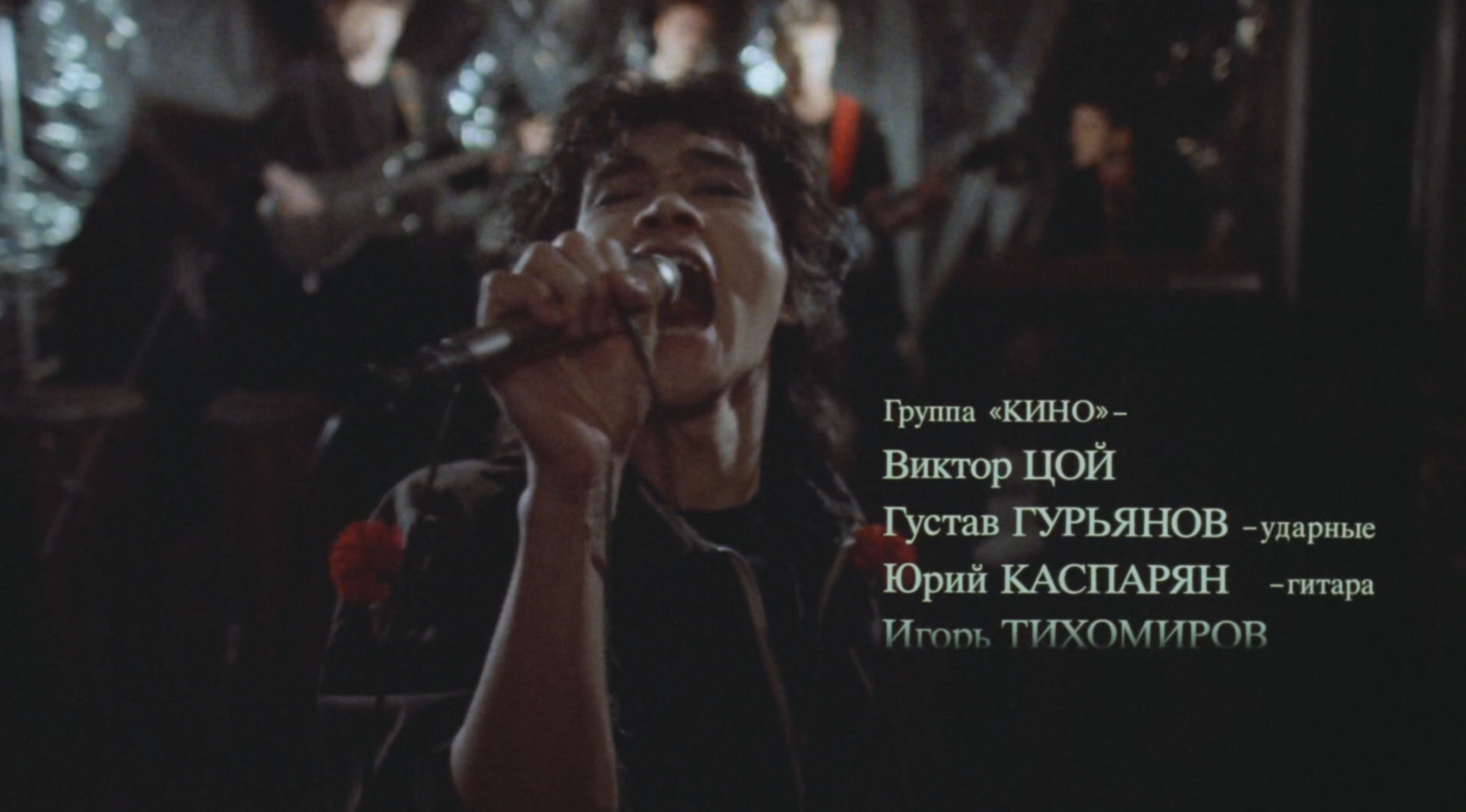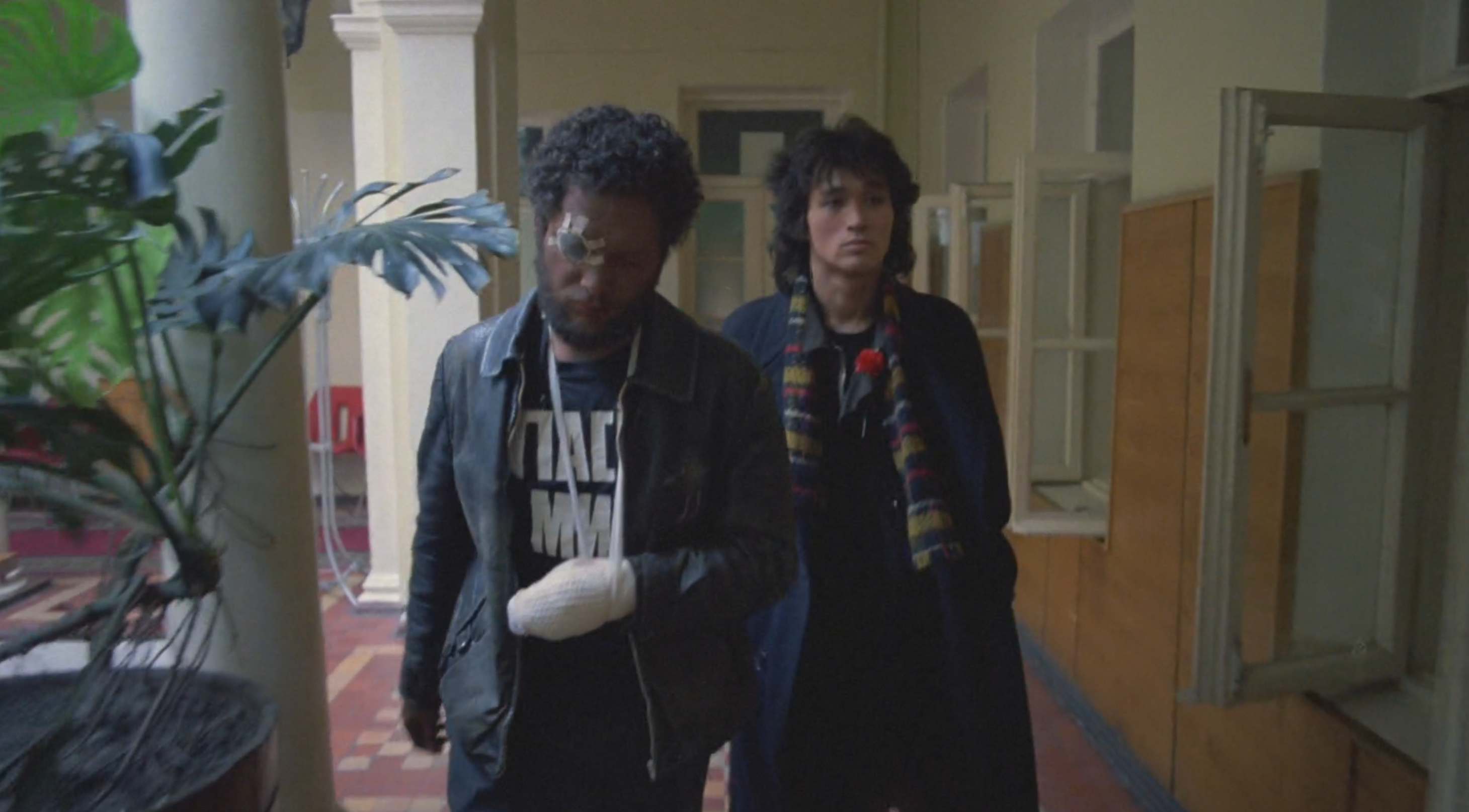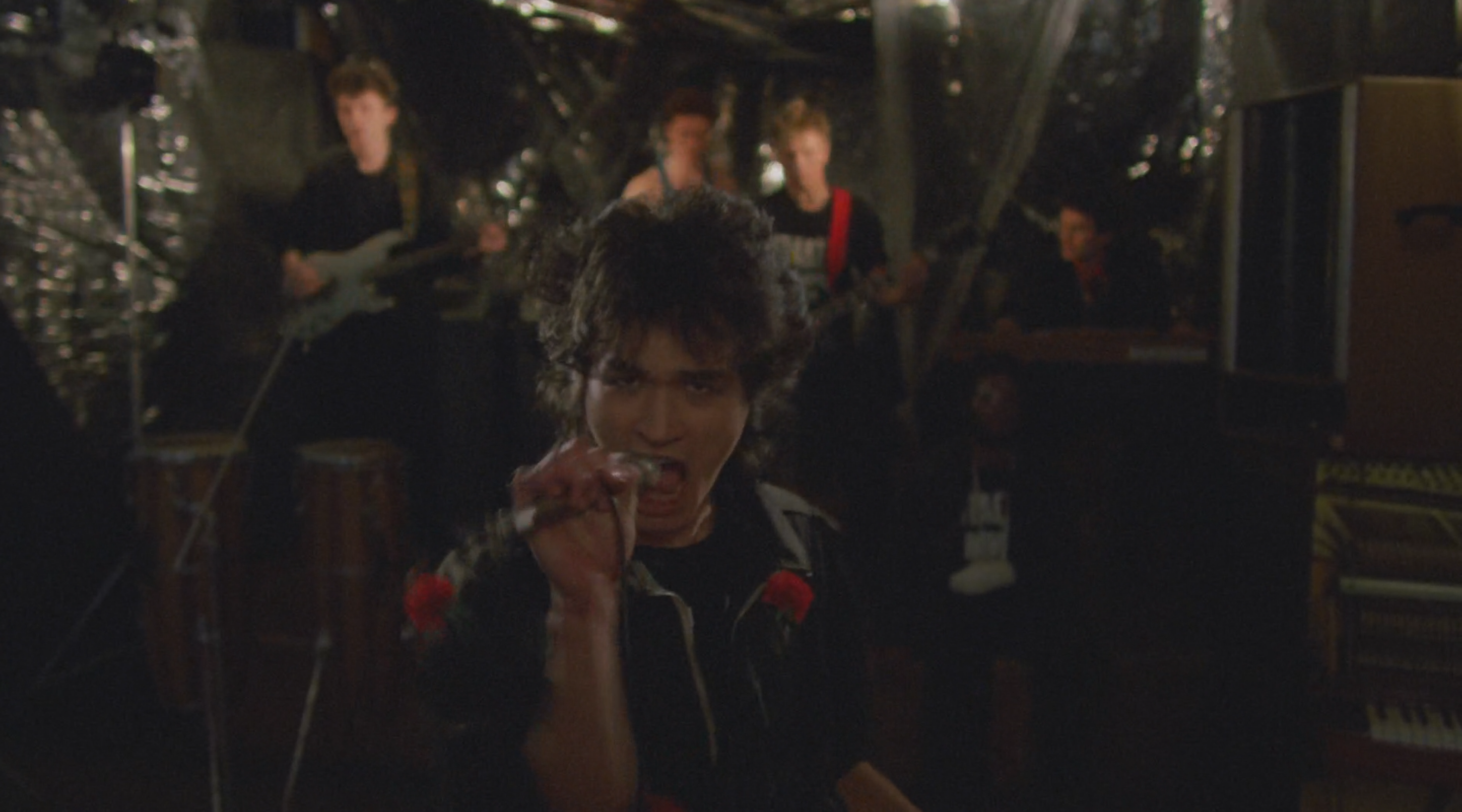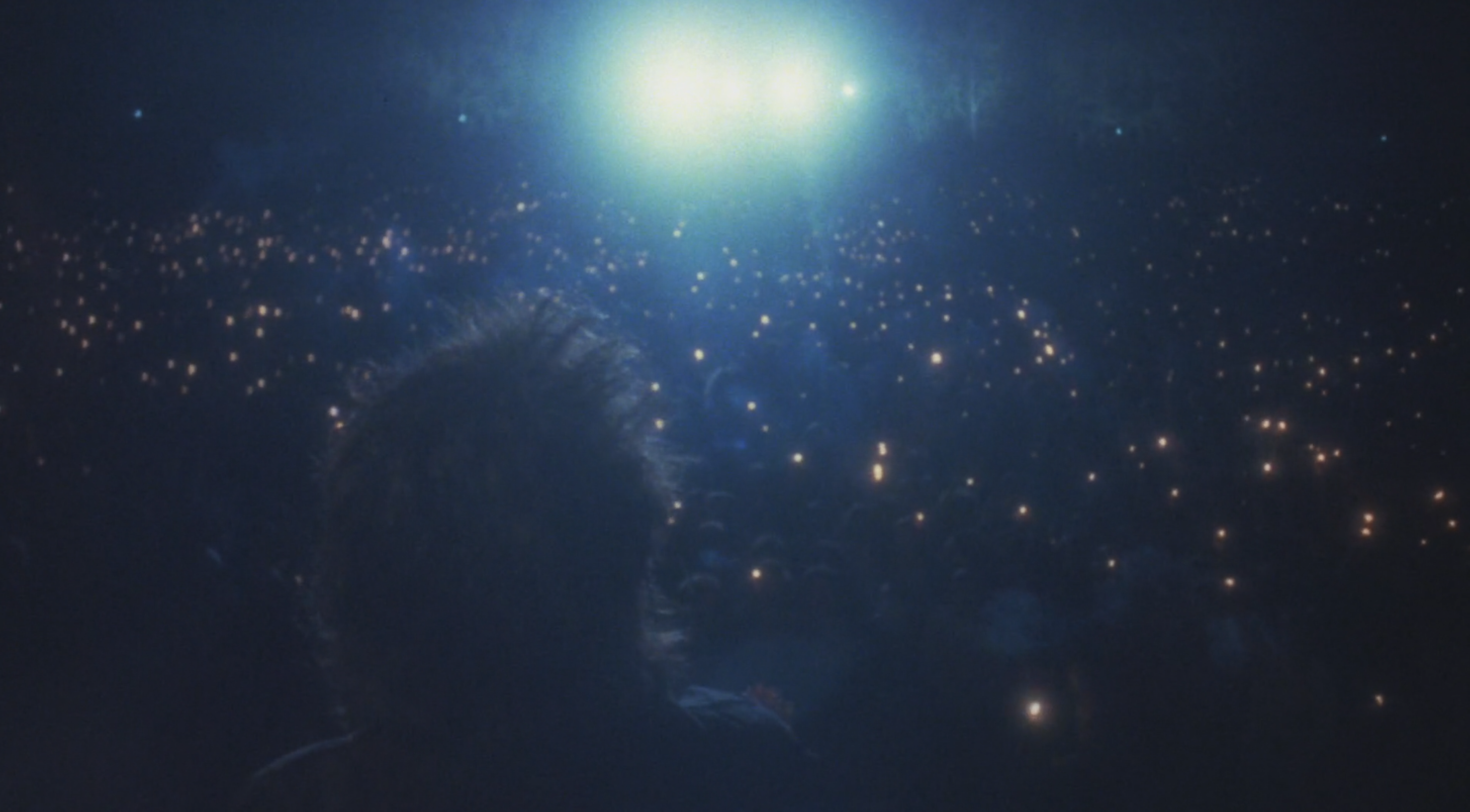Sergei Solovyov’s film “Assa,” 1987
[4 items]
A bottle's green glass instead of the warmth
Smoke instead of fire
A day taken out of the calendar
Red sun's burnt to ashes,
and the day fades away with it.
City on fire's covered with shadow.
Our hearts are longing for changes
Our eyes are longing for changes
It's in our laugh and in our tears
And in the pulsation of our veins
Changes, we are longing for changes
Electric light prolongues our day
And a matchbox is totally empty
But the flame of kitchen gas is like a flower in blossom
A cigarette's in a hand, tea cup's on the table
The scheme is simple
There's nothing more, everything's inside us.
Our hearts are longing for changes
Our eyes are longing for changes
It's in our laugh and in our tears
And in the pulsation of our veins
Changes, we are longing for changes
Our eyes are not full of wisdom
And our hands are not always skilled
But to understand one another we don't need it all.
A cigarette's in a hand, tea cup's on the table
That's how a circle completes
And suddenly we are too terrified to change anything
Our hearts are longing for changes
Our eyes are longing for changes
It's in our laugh and in our tears
And in the pulsation of our veins
Changes, we are longing for changes
The final sequence of Sergei Solovyov’s (1944-2021) film Assa (1987), in which Viktor Tsoi (1962-1990), the frontman of the band Kino, performs their rock anthem “Changes! [Peremen]” became the defining mass-cultural event that legitimized Soviet rock music as a product of the official mainstream. The sequence functions as a narrative epilogue for Assa’s deceased protagonist, the avant-garde musician Bananan—played by Leningrad artist Sergei “Afrika” Bugaev (1966-), seen in the second still above—whom Tsoi is set to replace as the resident performer at a seaside restaurant. In the middle of a barrage of bureaucratese from a restaurant official tasked with onboarding the band, Tsoi abruptly stands up and, without a word, walks off to an empty banquet hall, where his bandmates are already beginning to play. The group proceeds to perform their anthem, whose refrain repeats the words “Our hearts demand changes! / Our eyes demand changes!”
At one point during the performance, the camera pans away from the stage to reveal a stadium-sized crowd of fans (fourth still above) cheering and holding up lighters in an act of defiance and support, concluding with the film’s rolling credits. The film became one of the first Soviet blockbusters in terms of popularity and box-office sales, ushering in a new, semi-privatized model of film production and promotion pioneered by Solovyov’s production company, Circle (Tvorcheskoe ob”edinenie “Krug”). Assa’s cult status has stood the test of time, with the tight relationship between rock idols and movie plots influencing post-Soviet popular culture. For instance, the gangster protagonist of Aleksei Balabanov’s iconic Brother (1997) also happens to be a superfan of the band Nautilus Pompilius—whose lead singer, Vyacheslav Butusov (1961-), cameos in the film as Tsoi did in Assa.



